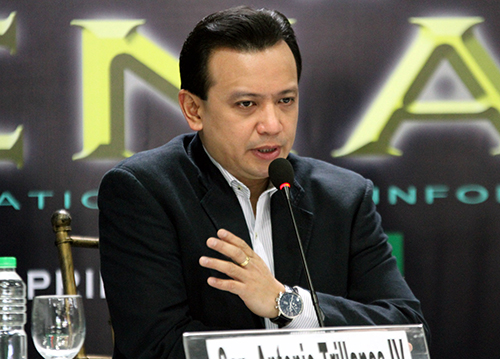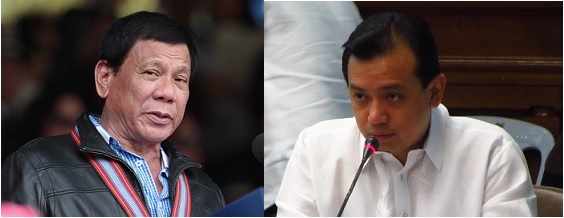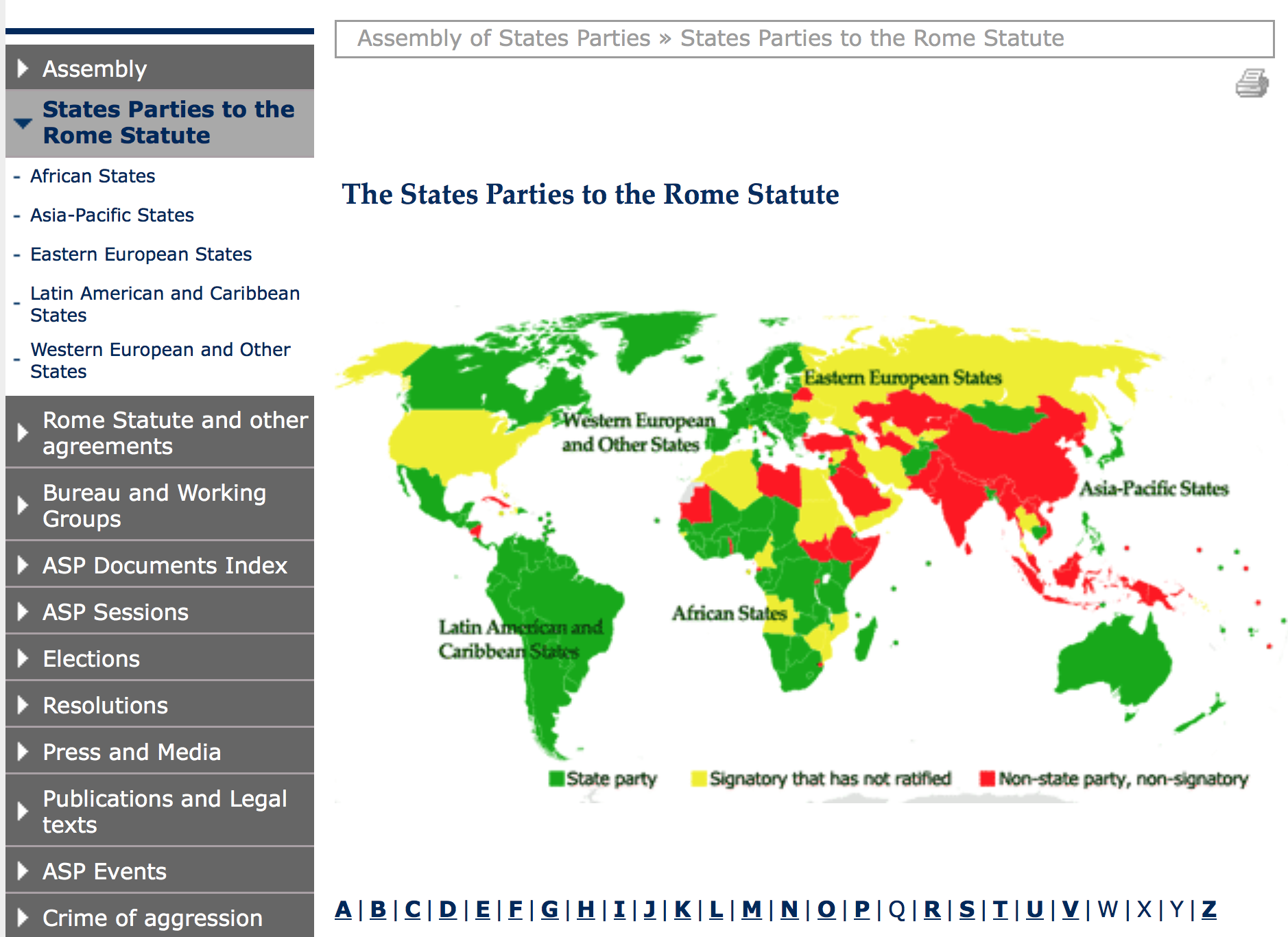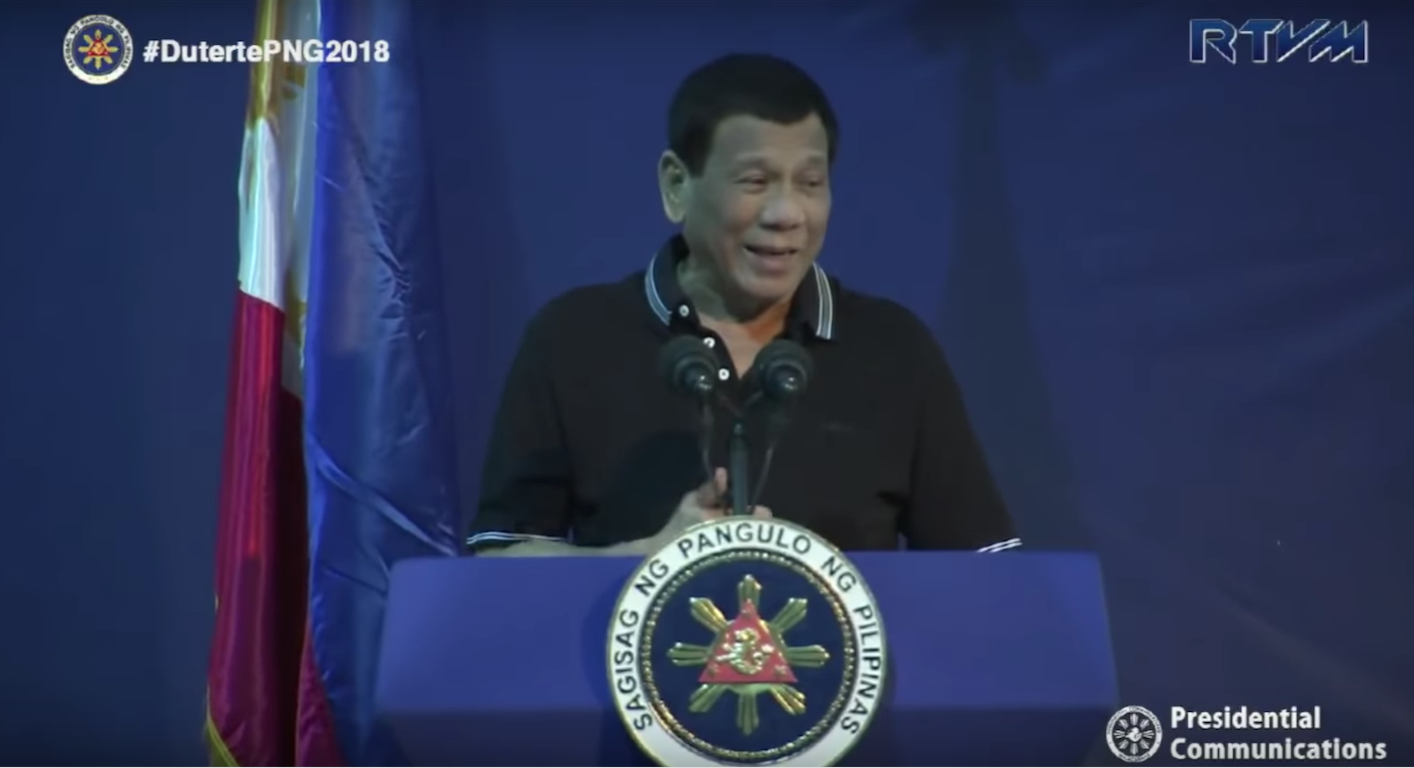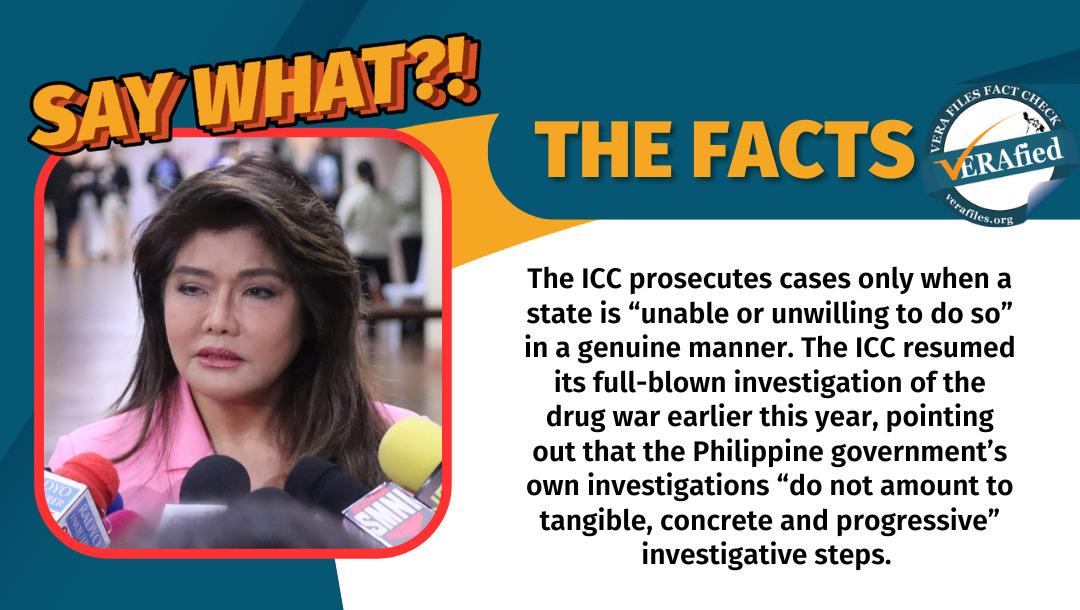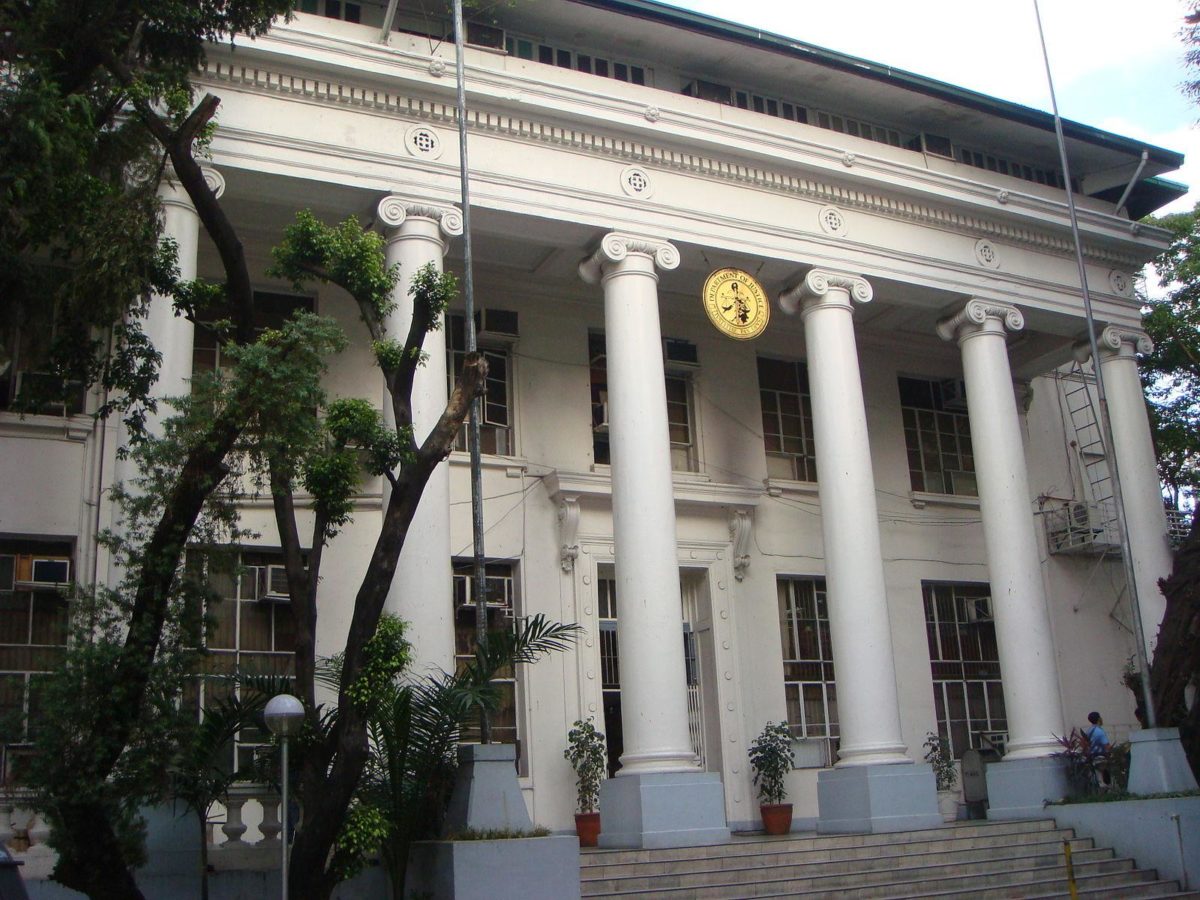Former Sen. Antonio Trillanes on Friday advised police officers involved in the government’s war on drugs to cooperate with the International Criminal Court (ICC) if and when it decides to conduct an investigation on the information of alleged crime against humanity against President Duterte.
Reacting to the update by ICC Prosecutor Fatou Bensouda, Trillanes, a staunch critic of Duterte, said, “To the members of the PNP who have been a part of the EJKs (extra-judicial killings), you would have to make a decision on whether you would fall with Duterte on being liable for crimes against humanity, or you would partly cleanse your crime by being a witness for the ICC prosecutors.”
Trillanes made the statement in response to Bensouda’s Dec. 5 report containing updates on preliminary investigations it launched against alleged state-backed crimes in various countries, including the Philippines. (See VERA FILES FACT SHEET: The ICC’s preliminary examination update on drug war, explained)
The former senator, who was one of those who filed the information on Duterte’s brutality, warned the police officers: “Now, let me point out the obvious, as Duterte steps down from office in just a little over two years, he would not be able to protect you. In fact, even Duterte won’t be able to protect himself.”
The ICC follows a long and rigorous process and the case against Duterte has not reached the trial stage. Started in 2018, it is still in the preliminary examination stage.
Bensouda said, “During the reporting period, the Office significantly advanced its assessment of whether there is a reasonable basis to proceed under article 15(3) of the Statute. During 2020, the Office will aim to finalise the preliminary examination in order to enable the Prosecutor to reach a decision on whether to seek authorisation to open an investigation into the situation in the Philippines.”
She also affirmed the ICC’s jurisdiction over alleged extrajudicial killings in the Philippines cited in the information even though the country has already left the body as a member in March.
Lawyer Ray Paolo J. Santiago, executive director of Ateneo Human Rights Center, said if and when the ICC opens an investigation, “The prosecutor will investigate to assess whether there is criminal responsibility and the prosecutor may question persons being investigated, victims and witnesses.”
Santiago said “The Pre-Trial Chamber, on the other hand, may take testimony or statement of a witness which may not be available later for purpose of trial. It may also order such measures necessary to preserve evidence.”
The Pre-Trial Chamber may also issue a warrant of arrest over a person believed to have committed a crime under the Rome Statute, the treaty that created the ICC, he said.
